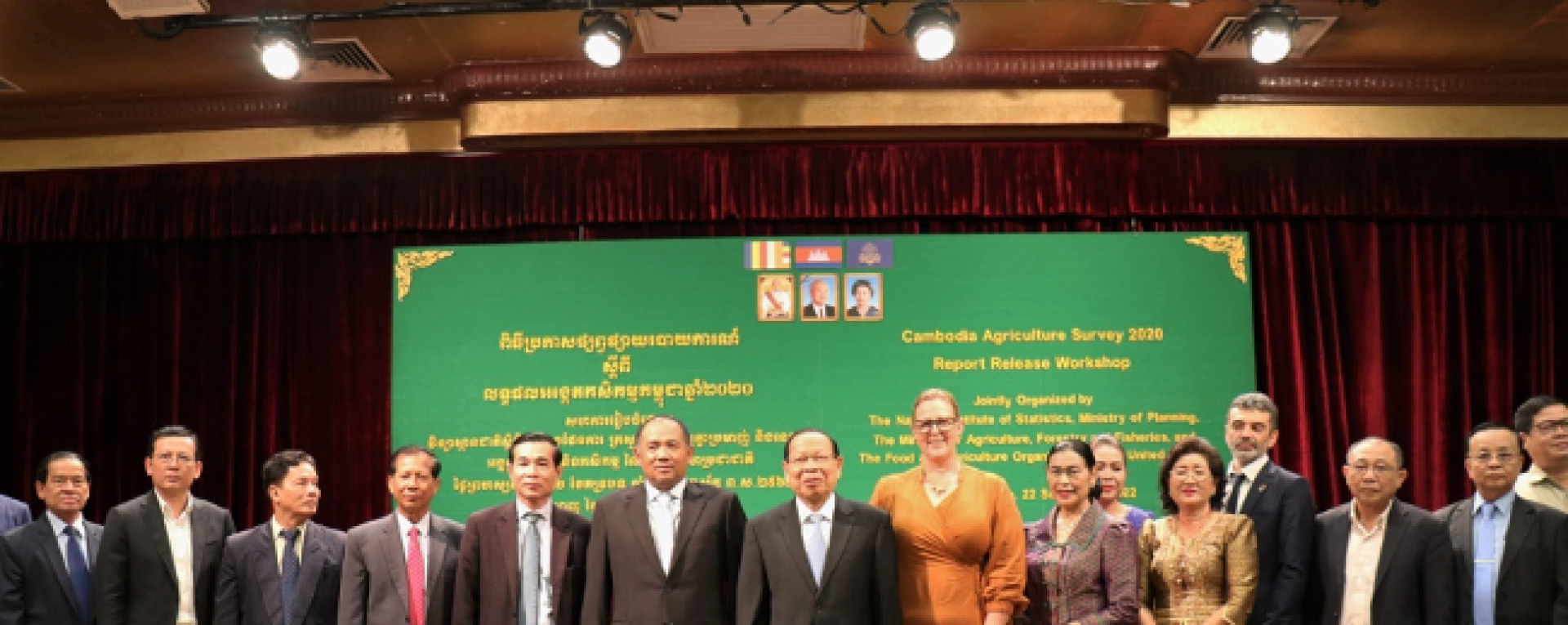50x2030 Partners with Cambodia to Launch Data Programming to Achieve Key Developmental Priorities
In 2020, the Royal Government of Cambodia, through the Ministry of Agriculture, Forestry, and Fisheries (MAFF) and the National Institute of Statistics (NIS), sought to launch a new data program to accelerate sustainable development and improve livelihoods for the Cambodian people. MAFF and NIS partnered with the 50x2030 Initiative to produce and make use of robust agricultural survey data to contribute to addressing key developmental priorities, such as promoting sustainable agriculture, reducing poverty, increasing agricultural exports, and increasing production of livestock to reduce a reliance on imports.
To support Cambodia’s development goals, agricultural statistics are a critical tool to improve metrics tracking, highlight challenges, and provide evidence for planning and policy purposes. The 50x2030 Initiative conducted a Data Use Assessment, which found that overall, minimal amounts of data had been released for use, there was limited awareness of the data that was available, and there were low levels of capacity to effectively use available data to achieve developmental goals. In response to these findings, the 50x2030 Initiative has provided support to the Royal Government of Cambodia to improve data availability and quality by assisting the NIS in conducting agricultural surveys in 2020 and 2021. Several trainings were offered in country to support stakeholders in analyzing data and extracting findings.
Additionally, multiple Data Use Research Grants were awarded to further evaluate relevant topics and provide policy recommendations. The findings from a grant, titled “Sources of Information Diffusion and Adoption of Agricultural Technologies: Evidence from Cambodia,” were presented at a national conference to inform strategies related to training and technology. This research grant found empirical evidence that agricultural information, when shared by traders and amongst farmers, supports adoption of agricultural technology in Cambodia. A key learning for policy makers is that it will be necessary to build trust among farmers and strengthen agricultural social networks to yield greater adoption of agricultural technology, which will ultimately promote increased production and efficiency.
Though still in its nascent stage, the partnership between MAFF and the 50x2030 Initiative has shown promise in increasing a culture of data use for policy development, and therefore offers tremendous potential to ultimately contribute to sustainable development in Cambodia in the coming years.
